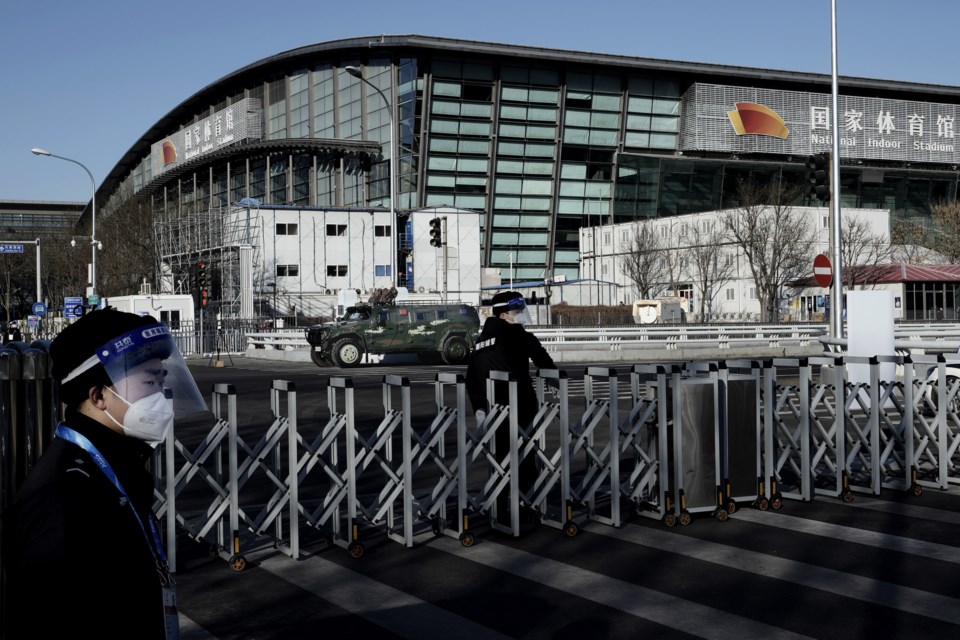BEIJING — An electric-powered bus reverses out of the hotel's parking lot through a gate and past a dozen security personnel before swinging out into Beijing traffic on a sunny morning.
There's a grand total of four media members on board.
Life in the Chinese capital bustles on the other side of the glass. Taxis honk in frustration, while people on scooters whiz past. Others line up for COVID-19 tests at an outdoor kiosk that resembles a hot dog stand found on the sidewalk of any major North American city.
A few minutes later, the bus cruises past the city's Museum of the Communist Party of China — an imposing structure fronted by columns and adorned with a massive hammer and sickle — before entering Beijing Olympic Park and taking a circuitous route to the Main Media Centre.
Journalists covering the 2022 Winter Olympics have repeated, and will continue to repeat, this route or one similar thousands of times before the Games close Feb. 20.
A so-called "closed loop" system is in place to keep Olympic participants — athletes, officials, media, volunteers — and Beijing residents separate for the duration of the event. The idea is to allow China to both host the showcase and continue to pursue its "COVID-zero" policy, which has been in place since the beginning of the pandemic.
The system seems to be working as intended. COVID-19 cases inside the tight bubble are low, but there are drawbacks.
The Olympic experience is supposed to be about so much more than just competition. It usually includes an exchange of cultures, getting a chance to experience the sights and sounds of a new country, and when time allows, explore the host city.
There will be nothing of the sort in a Beijing set against COVID-19's backdrop.
The pandemic-delayed Summer Games in Tokyo six months ago had plenty of rules, but nothing like the restrictions put in place by China.
The media buses — moving fishbowls those inside can never exit unless at a venue or hotel — offer brief glimpses into regular life before ducking behind the wire.
The Olympic Park itself is a maze of fences, barriers and gates patrolled by an army of stern-faced security personnel.
And forget about walking anywhere, other than to a park that's mostly used by television crews as a scenic backdrop.
Venues a few hundred metres apart and easily walkable require waiting at a stop for the next bus. Want to visit one of the hockey arenas and then hit the curling venue? Better budget some extra time.
The buses mostly run on schedule, but that can mean operating at a frustrating snail's pace on empty roads.
For the opening ceremony at the National Stadium — also known as the "Bird's Nest" for its unique outer structure — media had to board buses for a 25-minute crawl that would have been a short jaunt on foot.
One afternoon a couple of days later, a media member asked a colleague if they could get to the Olympic rings near the venue.
"I doubt it," a disappointed voice replied.
His instincts were correct.
As night falls on another Olympic night in Beijing, families are taking pictures in front of a giant version of the Games mascot, a cartoonish panda named Bing Dwen Dwen, outside one of the park gates as fluorescent lights flicker in the city's night sky.
A bus rolls by to take media back to the same hotel behind a fence manned by guards trying to stay warm.
Reporters disembark, flash their credentials against a sensor to confirm their identity and body temperature, and head to their rooms.
They'll all do it again tomorrow.
This report by The Canadian Press was first published Feb. 8, 2022.
___
Follow @JClipperton_CP on Twitter
Joshua Clipperton, The Canadian Press

